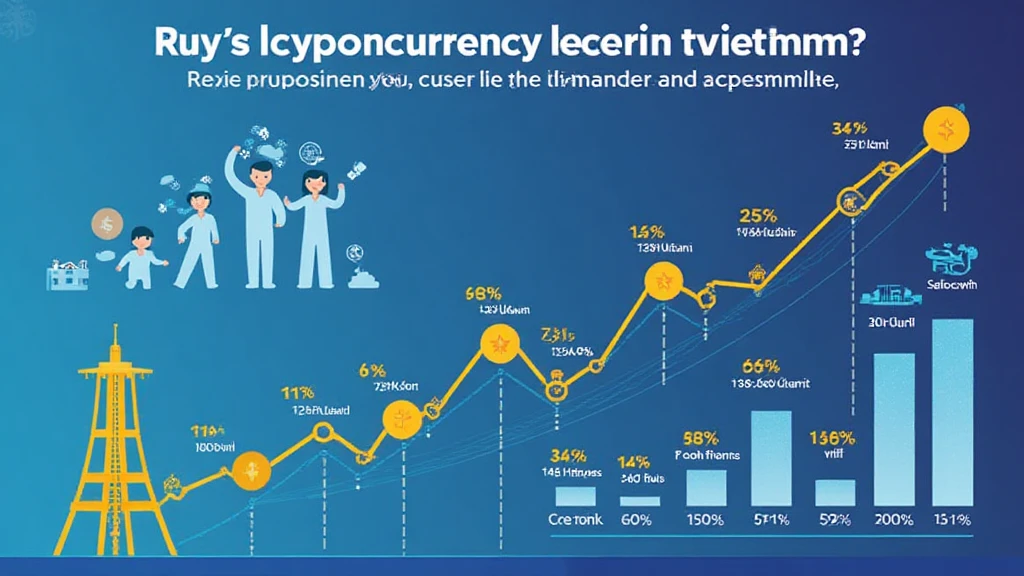Introduction
Vietnam’s approach to cryptocurrency regulation has been attracting attention in recent years. With an influx of digital asset ventures, the Vietnamese government recognized the need to create a conducive environment for fintech innovation. This is exemplified through initiatives like the regulatory sandbox, aimed at allowing startups to experiment with blockchain solutions under regulatory oversight.
In 2024, global losses from decentralized finance breaches amounted to $4.1 billion, signaling a pressing need for robust regulatory frameworks to protect investors. As such, understanding the implications of the Vietnam regulatory sandbox becomes critical for businesses looking to thrive in this rapidly evolving landscape.
What is the Regulatory Sandbox?
The Vietnam regulatory sandbox is a controlled environment that allows businesses to test innovative products, services, and business models while being supervised by relevant authorities like the State Bank of Vietnam (SBV) and the Ministry of Information and Communications (MIC). This framework not only promotes regulatory compliance but also encourages innovation and resilience in the fintech sector.

- Facilitates integration of new technologies into finance.
- Enables regulators to identify potential risks and mitigate them early.
- Encourages collaboration between startups and regulators.
The Growth of Vietnam’s Cryptocurrency Market
As of 2023, Vietnam holds one of the quickest growing crypto user bases in Southeast Asia, with estimates suggesting a growth rate of over 30% annually. Given this upsurge, the establishment of a regulatory sandbox serves a dual purpose: it harnesses innovation while safeguarding consumers.

Source: Reported by Vintech Institute
Advantages of the Sandbox Approach
- Test Real-World Conditions: Businesses can operate in realistic settings, identifying potential issues before full-scale launch.
- Feedback Loop: Regulatory bodies provide immediate feedback, assisting firms in aligning with legal requirements.
- Consumer Awareness: Informed public about emerging technologies increases confidence in new offerings.
Case Studies in the Sandbox
Several projects have successfully utilized the regulatory sandbox in Vietnam. For instance, a blockchain-based remittance service was able to lower transaction fees by over 50% compared to traditional methods. Meanwhile, the financial transparency of blockchain platforms has improved trust among users.
Best Practices for Entering the Sandbox
Startups aiming to join the Vietnam regulatory sandbox should follow these guidelines:
- Conduct Preliminary Research: Understanding existing regulations can inform strategy and ensure compliance.
- Prepare Documentation: Clear proposals outlining the technology, anticipated risks, and mitigation strategies are essential.
- Engage with Stakeholders: Collaborating with regulators early on builds trust and facilitates smooth integration.
Challenges Faced by Startups
Despite the advantages, startups face significant hurdles when entering Vietnam’s fintech space. These include:
- The complexity of regulations can prove daunting for new entrants.
- Accessing resources and support networks is often limited, particularly for smaller startups.
- Public skepticism regarding the safety of blockchain technologies can hinder adoption.
Overcoming These Challenges
For startups to succeed in this environment, they must embrace collaboration with established firms, streamline communication with regulators, and educate potential users. For instance, workshops and seminars can play a pivotal role in demystifying cryptocurrencies and blockchain technology in Vietnam.
The Future of Blockchain Regulation in Vietnam
As Vietnam undergoes further digital transformation, we can anticipate the government will continually refine the regulations surrounding cryptocurrencies. Initiatives like the regulatory sandbox not only ensure the security of investors but also stimulate the local economy by attracting foreign investments.
In a market projected to reach $3 billion by 2025, the frameworks surrounding crypto will likely evolve, with potential expansions of existing regulations to include digital currencies and non-fungible tokens (NFTs).
Conclusion
Understanding the role of the Vietnam regulatory sandbox is essential for any startup aspiring to venture into the cryptocurrency space within the region. This environment not only fosters innovation but also aligns the interests of startups, regulators, and consumers alike.
If you are interested in the latest updates regarding cryptocurrency regulations in Vietnam, consider visiting hibt.com for comprehensive insights.
Remember, as the landscape evolves, staying informed is key to navigating opportunities and challenges alike.
For more articles, check our Vietnam crypto tax guide and explore ways to audit smart contracts effectively.
Ultimately, as this sector evolves, the viability and security of blockchain initiatives hinge on the ability to create a safe and dynamic regulatory environment—one where innovation thrives within the framework established by the Vietnam regulatory sandbox.
by Dr. Nguyen Hoang Minh, a leading expert in blockchain regulations and author of over 15 papers on digital finance innovation. Dr. Minh has spearheaded significant compliance projects to advance Vietnam’s fintech landscape.




